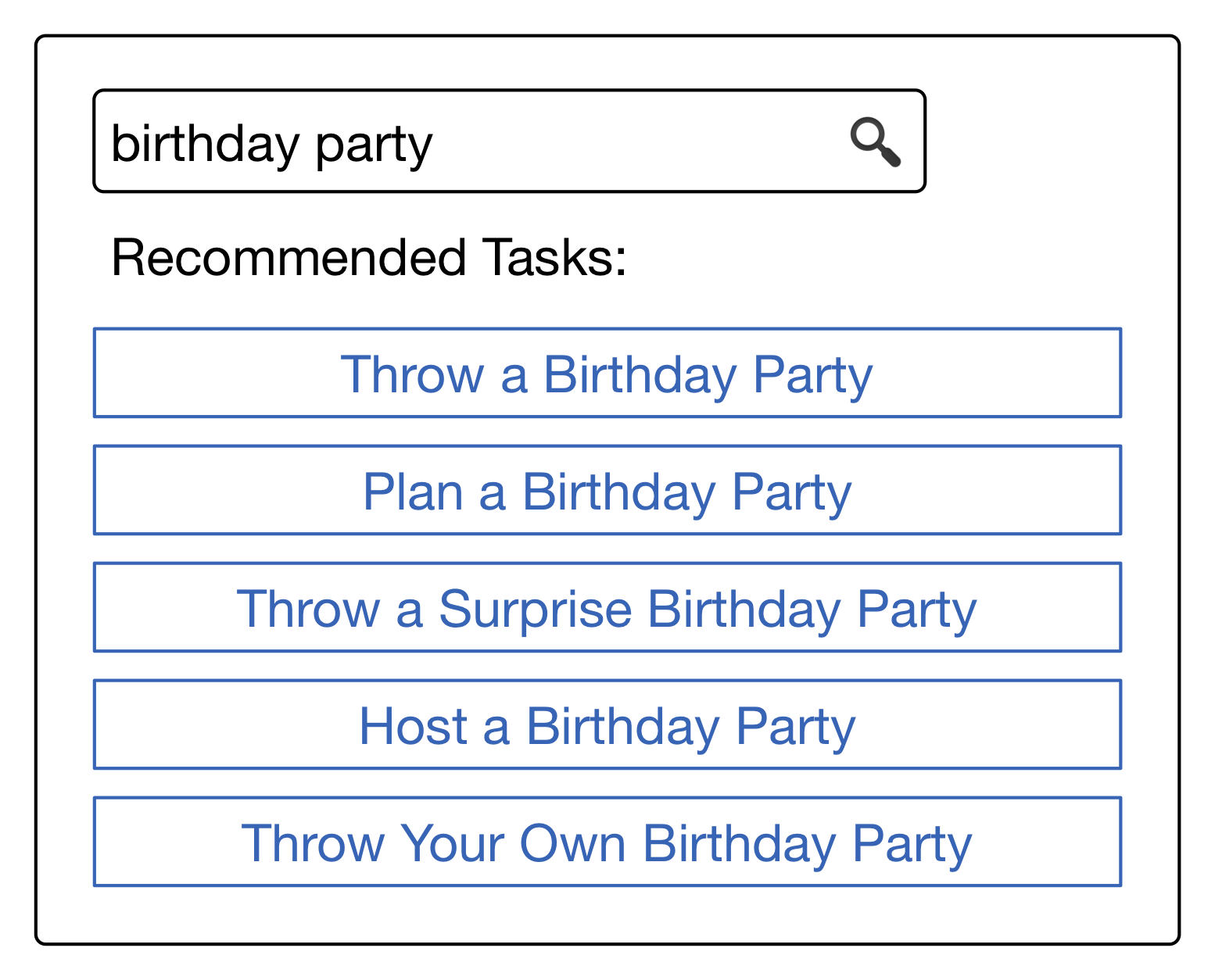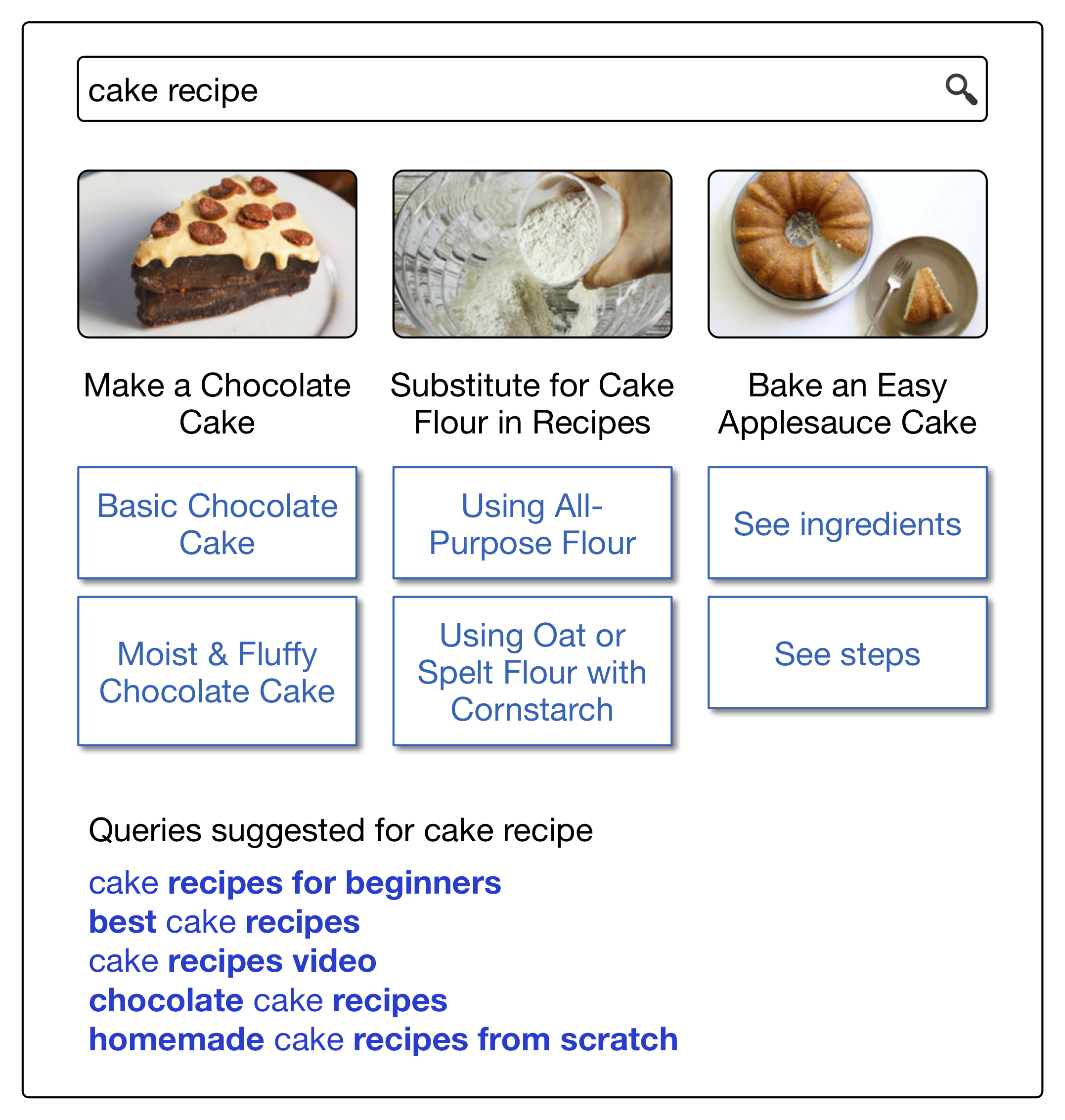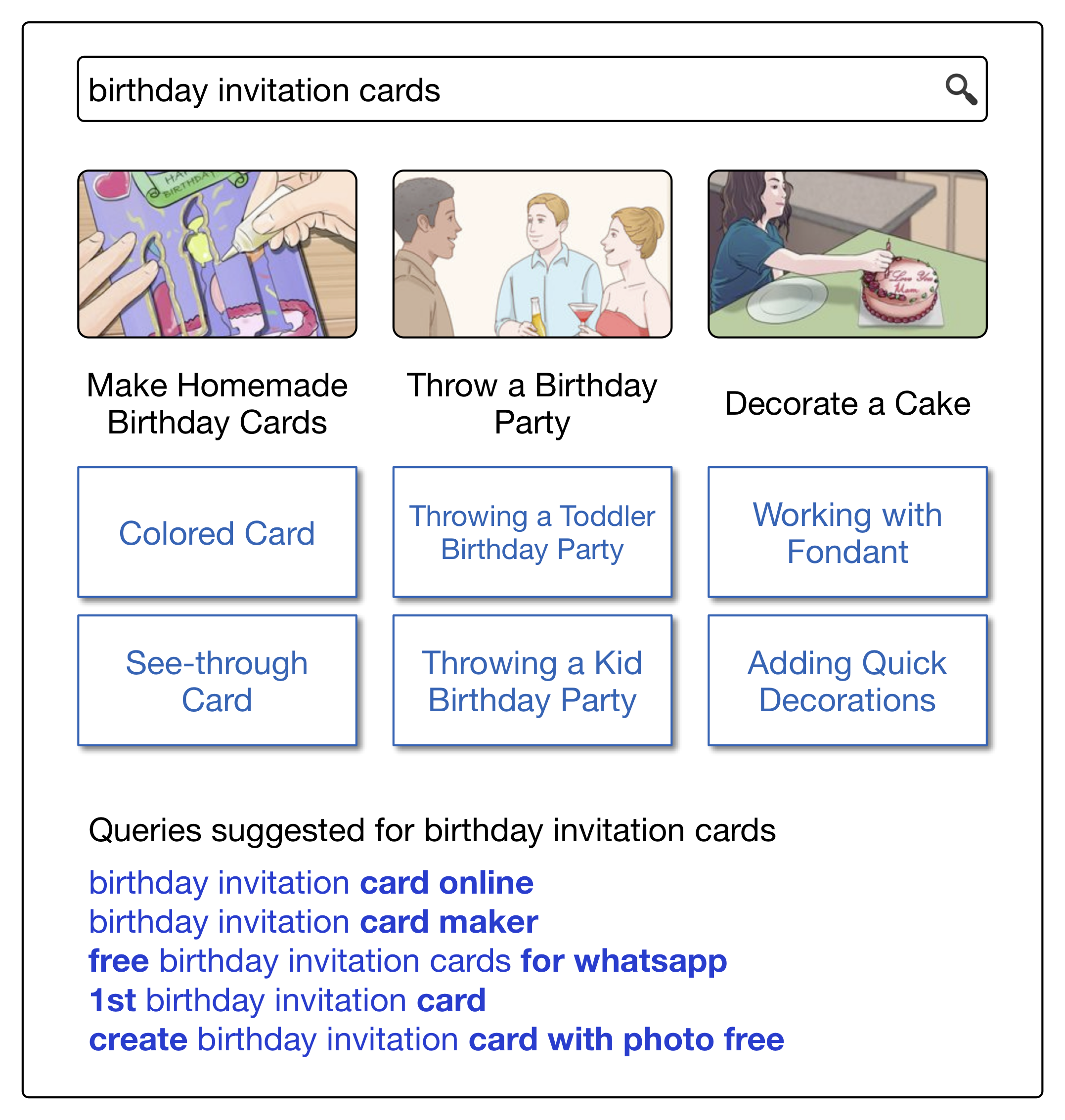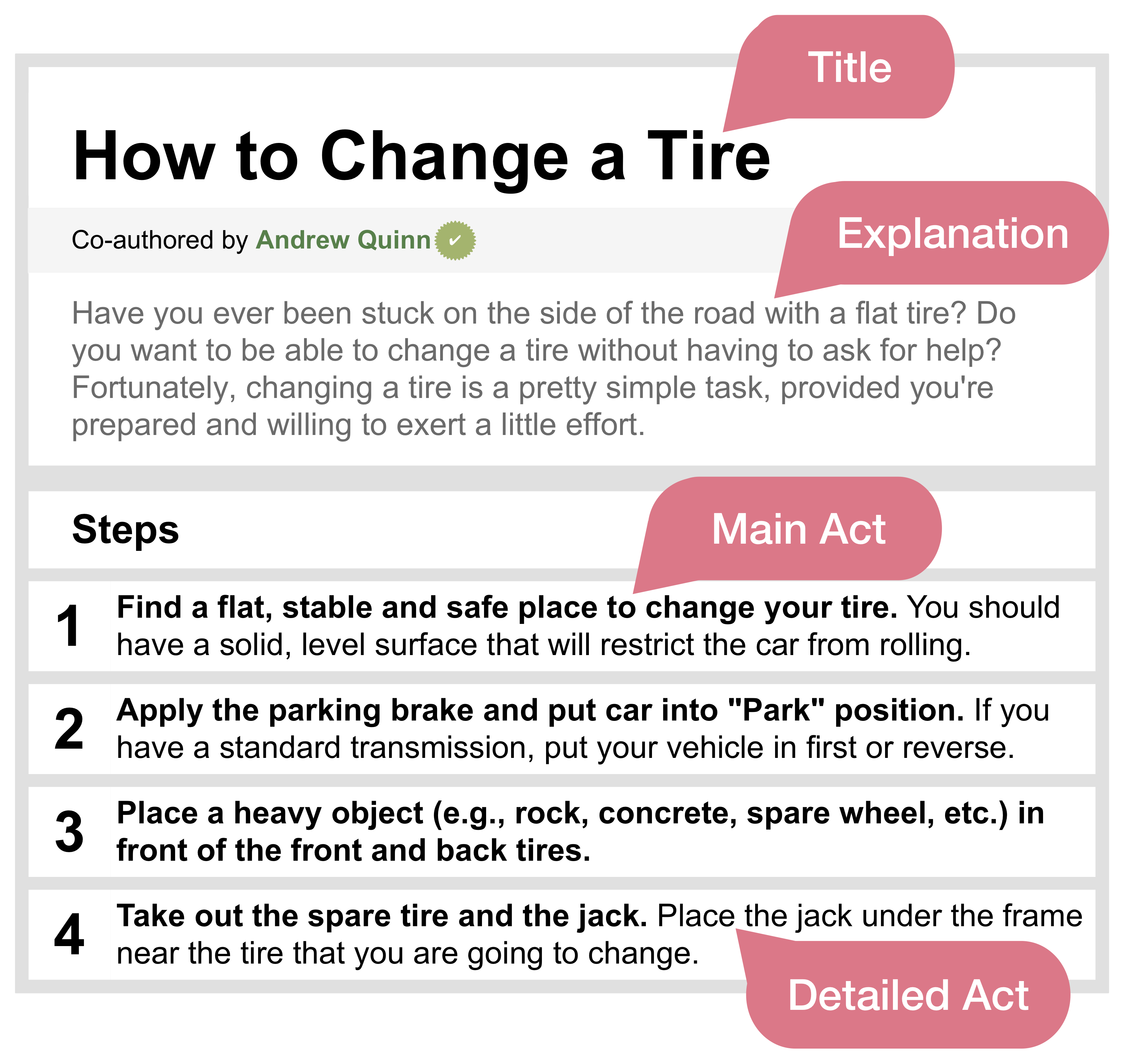task force
Recommending tasks to web search users
Web search is often performed in the context of some larger underlying task, involving a nontrivial sequence of steps to be completed. A typical example is planning a trip to a city, say, Barcelona. In order to complete her task, the user typically needs to issue a query for booking a flight to Barcelona, another query for booking a hotel, another one to check the things to do in the city. Some of these steps may be already simplified, for example, the interface for booking the hotel might also include suitable offers for booking a flight, or provide guides for visiting points of interest.
Even in those cases, the user has to deal with the cognitive workload of comparing offers, realizing that she might also need to rent a car, aggregating costs from multiple services, remembering that she would like to ask for special hotel amenities, or issuing new searches when exploring alternative dates. Current web search engines are far from supporting task completion. Hence, there is a growing stream of research aimed at making search engines more aware of complex search tasks (i.e., recognizing what task the user is trying to accomplish) and customizing the search experience appropriately.
Our research work aims to recommend specific tasks to users, based on their search queries. An illustrative scenario is depicted in the following mock-up, where an envisaged interface answers the user query “birthday party” by providing a list of recommended tasks.

We introduce the problem of query-based task recommendation, which is cast as a top-N recommendation problem: returning a list of recommended tasks based on a given search query.
Beyond a single input query, we are also interested in the scenario of a set of queries that all share the same underlying task. Such a set is referred to as search mission. Hence, we introduce the problem of mission-based task recommendation. As an example, given a single query “cake recipe,” a highly relevant task to be recommended might be Make a chocolate cake.

Now, assuming that the search mission also contains a second query “cake decorating ideas,” the task Make a birthday cake would also be relevant. Further, if the mission had a third query “birthday invitation cards,” then the recommended tasks could also include the task Throw a birthday party.

We use a dataset, based on WikiHow articles, as our tasks repository where to recommend tasks from. Each article describes a search task that can be accomplished by following a sequence of specific actions or subtasks. Such an article typically contains the following elements: a title, a brief explanation, and a sequence of steps (each made of a main act summarizing the step, and possibly also of a detailed act) corresponding to its subtasks.

If you are interested in more of this, please read Chapter 7 of my thesis Task-Based Support in Search Engines, for the technical details about how we:
- introduce the two research problems, query-based and mission-based task recommendation;
- propose approaches to address these problems;
- build the whole test collection, consisting of:
- a task repository,
- a set of search missions,
- representative best queries for each mission,
- and corresponding human judgements for relevance assessments;
- and report the experimental results of our proposal, as well as provide a detailed feature and query analysis.